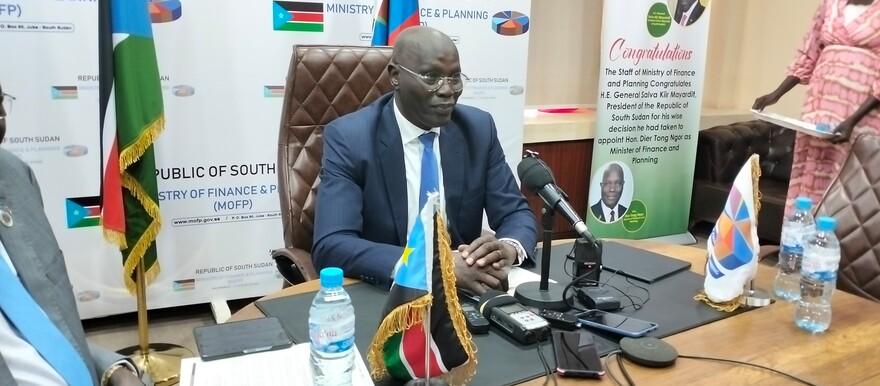The South Sudan government on Thursday secured $114.8 million in emergency funding support from the International Monetary Fund (IMF), the finance minister said.
This comes after the country’s authorities and the IMF staff reached a staff-level agreement for emergency financing through the fund’s new “Food Shock Window” of the Rapid Financing Instrument (RFI).
The funding was approved and disbursed by the Executive Board of the International Monetary Fund (IMF) on March 1st, 2023.
Dier Tong Ngor, Minister of Finance said the emergency funding will help the country address food insecurity, and support the health and education sectors.
“This disbursement (equivalent to 35% percent of South Sudan’s quota in the IMF) will help meet the urgent Balance of Payment needs while supporting food security and the part going for the budget support will meet urgent health and education financing,” Dier told reporters during a press conference held in Juba on Thursday.
Dier said the fund will be used to address the economic crisis.
“With this new financing, South Sudan has enhanced its foreign exchange reserves position, and the Bank of South Sudan can now intervene in the market to meet any gaps in the foreign exchange market,” he added.
He said the country is undertaking other initiatives to restore economic stability.
“To counteract these new realities, South Sudanese authorities have worked to maintain macro-financial stability in these highly challenging circumstances,” he said. “Key macroeconomic policies have been geared toward avoiding monetary financing, safeguarding priority expenditures, easing pressure on international reserves, and preserving financial stability.”
He said the country will remain closely engaged with the IMF to find better ways to implement the Program Monitoring with Board involvement (PMB).
“The PMB aims to provide a strong anchor for macroeconomic policies, further catalyze donor support, and help pave the way towards the ECF arrangement with the IMF soon,” he said.
The years of heavy floods, the Ukraine conflict, and the Covid pandemic have worsened an already dire humanitarian situation, with some 8.3 million people, or two-thirds of the population, facing acute food insecurity, the IMF said.




